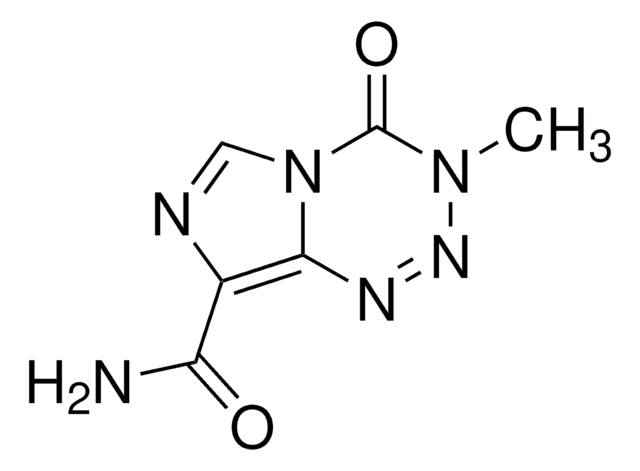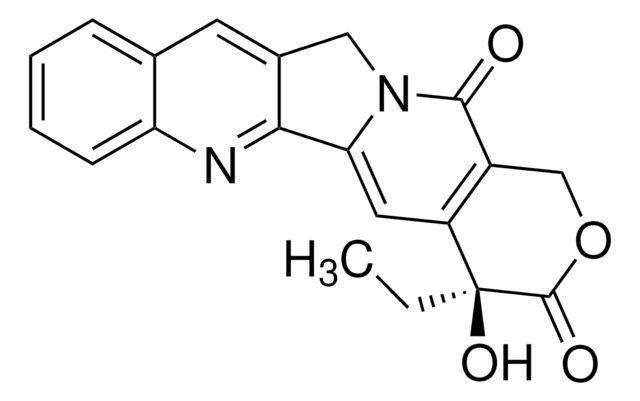I1406
Irinotecan hydrochloride
powder, ≥97% (HPLC)
동의어(들):
(S)-4,11-diethyl-3,4,12,14-tetrahydro-4-hydroxy-3,14-dioxo-1H-pyrano[3′,4′:6,7]indolizino[1,2-b]quinolin-9-yl ester, CPT-11, [1,4′-Bipiperidine]-1′-carboxylic acid
About This Item
추천 제품
제품명
Irinotecan hydrochloride, topoisomerase inhibitor
생물학적 소스
plant (Fructus camptothecae)
분석
≥97% (HPLC)
양식
powder
solubility
DMSO: 50 mg/mL
저장 온도
2-8°C
SMILES string
Cl.CCc1c2CN3C(=O)C4=C(C=C3c2nc5ccc(OC(=O)N6CCC(CC6)N7CCCCC7)cc15)[C@@](O)(CC)C(=O)OC4
InChI
1S/C33H38N4O6.ClH/c1-3-22-23-16-21(43-32(40)36-14-10-20(11-15-36)35-12-6-5-7-13-35)8-9-27(23)34-29-24(22)18-37-28(29)17-26-25(30(37)38)19-42-31(39)33(26,41)4-2;/h8-9,16-17,20,41H,3-7,10-15,18-19H2,1-2H3;1H/t33-;/m0./s1
InChI key
GURKHSYORGJETM-WAQYZQTGSA-N
유전자 정보
human ... TOP1(7150)
애플리케이션
- in combination with 5-fluorouracil for screening growth inhibitory functionality in MDA-MB-231 breast cancer cells.
- in chemosensitivity screening of high-grade appendiceal (HGA) and low-grade appendiceal (LGA) organoids.
- as a chemotherapeutic agent in the cytotoxicity studies in combination with heat shock proteins inhibitors (HPSC1) in HT29 colon cancer cells.
생화학적/생리학적 작용
이미 열람한 고객
문서
Quinolones are a key group of antibiotics that interfere with DNA synthesis by inhibiting topoisomerase, most frequently topoisomerase II (DNA gyrase), an enzyme involved in DNA replication.
자사의 과학자팀은 생명 과학, 재료 과학, 화학 합성, 크로마토그래피, 분석 및 기타 많은 영역을 포함한 모든 과학 분야에 경험이 있습니다..
고객지원팀으로 연락바랍니다.










